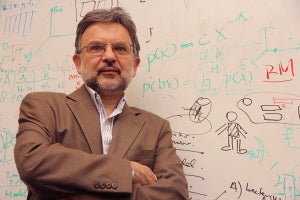Radu Marculescu, professor in the Chandra Family Department of Electrical and Computer Engineering, has been named a recipient of an Amazon Research Award.
News

Texas ECE postdoctoral scholar Jianing Zhu has received the 2025 TrustAI Rising Star Award, presented at the Lock-LLM Workshop of NeurIPS 2025.
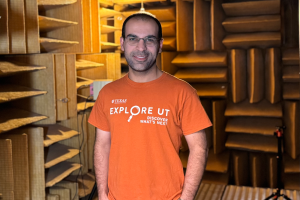
Texas ECE Ph.D. student Ehsan Vatankhah received first place in the Structural Acoustics and Vibration Young Presenter Competition for the talk "Magnetostrictive-based Jerk Sensor: experimental characterization and analytical estimation of sensitivity," at the Acoustical Society of America (ASA) New Orleans meeting this past Spring.
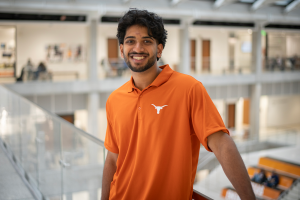
Texas ECE MS student Vivek Tallavajhula has received the 2025 IEEE Electron Devices Society (EDS) Graduate Masters Fellowship.
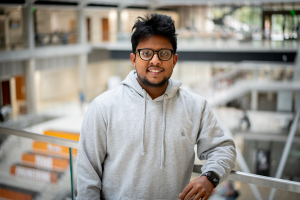
Texas ECE Ph.D. student Souradip Poddar has won the inaugural IEEE International Conference on LLM-Aided Design (LAD) Fellowship.

Nine Texas Engineering faculty members are among the most cited researchers on the planet, according to a new report.
Clarivate’s Highly Cited Researchers 2025 cataloged researchers with the most influential work in their field—the number of papers among the top 1% of citations. Texas Engineers on the list of 6,868 individuals across more than 1,300
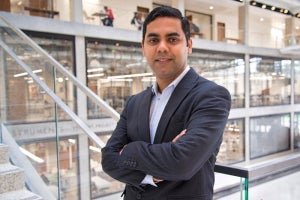
Jaydeep Kulkarni, associate professor in the Chandra Family Department of Electrical and Computer Engineering, has been elevated to a Fellow of the Institute of Electrical and Electronics Engineers (IEEE) for 2026 for "for contributions to low-power SRAM and compute-in-memory circuit technologies."

Jeff Andrews, professor in the Chandra Family Department of Electrical and Computer Engineering at The University of Texas at Austin, has been selected as the winner of the 2025 IEEE Communications Society Communication Theory Technical Committee (CTTC) Technical Achievement Award for "contributions to the analysis and design of wireless cellular communication systems.”
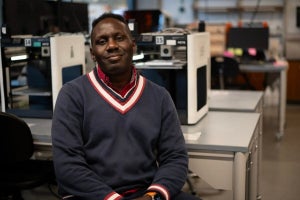
A new smartwatch, being developed by researchers from The University of Texas at Austin and North Carolina State University, will enable continuous monitoring of blood pressure, a key indicator of heart health.

A year-long collaboration yields a unique performance that combines dance with next-generation sensing capabilities.'
